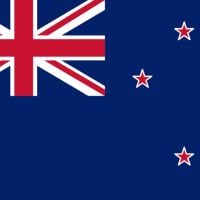Deadline: 15-Aug-25
The thematic special project Innovations, Commercialization, and Growth by the Foundation for Economic Education (Liikesivistysrahasto) is an important development area for enhancing Finland’s competitiveness.
With the special project the Fund aims to support high-quality business research on the chosen theme.
The thematic special project Innovation, Commercialization, and Growth focuses on key areas essential to strengthening Finland’s competitiveness. In enhancing the competitiveness of Finnish companies, commercialization is often linked to:
- successful scaling of companies’ business operations, innovation management, manufacturing, services, and business concepts in international markets
- successful utilization of digital channels and concepts
- as well as successful pricing.
Focus Areas
- Business Renewal
- How to make effective use of new business opportunities?
- What are the internal mechanisms for corporate renewal?
- Geopolitical challenges. How can they better understand and manage the changing business environment?
- Entrepreneurship, Scaling and Growth
- How do startups become SMEs?
- How to get companies to grow and scale more in large numbers?
- How to create entrepreneurial ecosystems?
- What is the role of ownership in companies?
- How do changes in ownership affect different levels at various stages of business development?
- Future Sustainable Environment
- How can the business be developed towards responsibility?
- The link between climate change, natural loss and resource over-consumption in business.
- How to promote the convergence of technology and sustainable development? Green transition and its financing.
- How is the normative environment developing alongside technology?
- Development of the risk analyzes of the security of supply and cyber security.
- Industrial Dynamics
- The impacts of digitalization, artificial intelligence, and data on industry dynamics.
- Competition policy and regulation.
- Private and public sectors.
- Changes driven by geopolitics and the new opportunities it presents.
- The green transition as part of industry dynamics and a driver of growth.
- Leadership Competence
- How do they develop management skills in different sectors, in addition to companies in public organizations?
- How should telecommuting and remote work be managed at both the operational and board level?
- How do they develop risk management?
Grant Types
- The three-year research group grant is open to groups led by a Principal Investigator (PI). This multi-year grant offers a unique opportunity to focus on collaborative research that seeks solutions to current, significant issues for business and society. Research group members are doctoral and postdoctoral researchers. A plan for building an international research network is required as part of the application.
- Individuals and working groups can apply for grants for 4–12 months of doctoral or postdoctoral research work in 2026. In addition to research work, a separate application can be submitted for one conference trip.
- Target (cost) grants are also available for conference travel, research visits, or other study trips. Organizations may apply for funding to organize conferences. Conferences may take place before the grant awards, starting from October 1, 2025. Note: No preliminary decisions will be made regarding the grants to be announced at the end of November.
- Other purposes: They especially encourage the development of international research consortia or networks through groups. Grants may also be applied for other clearly defined purposes specified in the application.
- In accordance with the rules of the special funds, support may also be awarded to applicant groups specifically designated by donors.
Grant Period
- Individual working grants of 4–12 months are awarded for the calendar year 2026. Grants under the thematic special project may range from 12 to 36 months, starting from 1 January 2026. Research group grants are awarded for a 36-month period from 1 January 2026, to 31 December 2028. PI (Principal Investigator) specifies the working periods of the group members, which may range from 12 to 36 months.
Eligibility Criteria
- Grants may be applied for by individuals, research and working groups, as well as organizations. The applicant’s background may be outside the field of business and represent new interdisciplinary perspectives. Grants are not awarded for undergraduate or graduate degree studies.
For more information, visit Foundation for Economic Education.







































